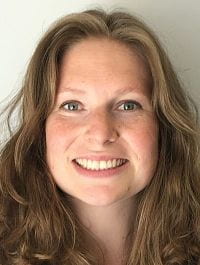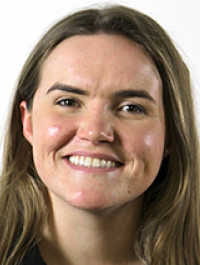Labs and lasses
To complement a major investment in new facilities, a large team of dedicated technical specialists keep our state-of-the art equipment in tip-top shape, help us put theory into practice and ensure our teaching and research is industry-relevant. As more female students are donning lab-coats, diversity among our technical staff is also on the up.
We spoke to Ellen Gingell and Jude Bramton. Ellen is a Teaching Technician in the General Engineering laboratory and Jude is Technical Manager of the Teaching and Development team.
What is the best thing about working within technical services at the university?
Amphibious vehicles project
Ellen: Interacting with students on a daily basis and assisting in problem solving. I’m fairly new in the role but I really enjoyed the amphibious vehicles project where students create a vehicle to work on land and in water. When they all gathered to test their work on the assault course, the atmosphere was really lovely and it was interesting to see how competitive they were. I love being a part of the team, typically engineering has been to seen to be male dominated and although I have never felt out of place I believe having a female team member helping in laboratory sessions could boost representation.
Jude: I love working in engineering. It’s an incredibly broad and wide-ranging subject, and working in engineering at a university provides even more variety. For example, in just one engineering building at Bristol we have over 40 laboratories, all doing something different, it couldn’t really get more varied! Working as part of the technical team is great because you get exposure to some really interesting projects in these spaces and we get to work with everyone – academics, students, with our outreach teams, and more. It’s great to be part of facilitating amazing engineering to happen.
This year’s theme for International Women in Engineering Day is ‘Shape the World’ – how do you think engineers will do that in the next 10 years?

Ellen: If I could answer that question, I’d be expecting a lot of money to come my way! People are becoming more conscious of the impact we have on the world. I hope engineers can design and create an environment to meet ever-increasing population demands without the mass destruction of nature.
Jude: I agree – I hope that there is a huge push in sustainability – focussing on renewables, developing sustainable materials, etc. In the end, it will be engineers that help save the planet.
Why is it important for society to have more women in engineering?

Ellen: As with everything, increasing diversity widens the scope of inclusion. If as a world the inputs gathered are from a wider range of genders, backgrounds, ethnicities, more of society’s needs will be catered for. With gender equality coming on leaps and bounds, the way the world is manufactured and designed needs to follow suit!
Jude: The UK needs more engineers if we’re going to stay at the forefront of technology and innovation. The importance of role models is well known. If we want to increase the number of people in the engineering sector, we have to show that it’s a sector for everyone. Having more diverse engineering role models will mean fewer people thinking it’s not for them. Engineering shapes the society we live in and it utilises a huge range of skillsets, making it something that everyone can take part in. The more people involved, the more minds we will have to create the amazing inventions of the future.
What degree did you study, where and why did you choose it?
More information
Ellen: I studied Pharmacology at Nottingham Trent and have completed my PGCE for secondary science at The University of the West of England. Science has always been my passion and I always knew it would feature massively in my career. I wish that I had known more about engineering when I was at school, the application of science of real life scenarios is something I find very exciting. Due to my experience in secondary education I like to get myself as involved as I can in outreach to open up the younger generations eyes to the opportunities available to them.
Jude: I didn’t study engineering at university and that’s something I regret. I wish I’d have known more about it when I was at school. I was good at science and maths but engineering just didn’t come up as an option – not from careers counsellors, friends, family or teachers. That’s why I’ve always tried to get involved in outreach events so this doesn’t happen for other young people. I ended up doing a chemistry degree because I was good at it at A-level, but I had no idea what I wanted to do. I then studied nanomaterials for my PhD, if you’ve ever used an electron microscope you’d understand why – I remember the day I imaged actual carbon atoms, this still blows my mind!


